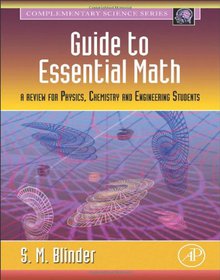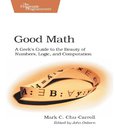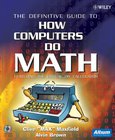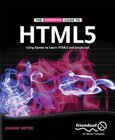Guide to Essential Math
A Review for Physics, Chemistry and Engineering Students

Book Details:
| Publisher: | Academic Press |
| Series: | Academic Press |
| Author: | S. M. Blinder |
| Edition: | 1 |
| ISBN-10: | 0123742641 |
| ISBN-13: | 9780123742643 |
| Pages: | 312 |
| Published: | May 08 2008 |
| Posted: | Nov 19 2014 |
| Language: | English |
| Book format: | |
| Book size: | 2.43 MB |
Book Description:
This book reminds students in junior, senior and graduate level courses in physics, chemistry and engineering of the math they may have forgotten (or learned imperfectly) which is needed to succeed in science courses. The focus is on math actually used in physics, chemistry and engineering, and the approach to mathematics begins with 12 examples of increasing complexity, designed to hone the student's ability to think in mathematical terms and to apply quantitative methods to scientific problems. By the author's design, no problems are included in the text, to allow the students to focus on their science course assignments. - Highly accessible presentation of fundamental mathematical techniques needed in science and engineering courses- Use of proven pedagogical techniques develolped during the author's 40 years of teaching experience- illustrations and links to reference material on World-Wide-Web- Coverage of fairly advanced topics, including vector and matrix algebra, partial differential equations, special functions and complex variables
Download Link:
Related Books:
Good Math
A Geek's Guide to the Beauty of Numbers, Logic, and Computation
Mathematics is beautiful--and it can be fun and exciting as well as practical. Good Math is your guide to some of the most intriguing topics from two thousand years of mathematics: from Egyptian fractions to Turing machines; from the real meaning of numbers to proof trees, group symmetry, and mechanical computation. If you've ever wondered what lay beyond the proofs you struggled to complete in high school geometry, or what limits the capabilities of computer on your desk, this is the book for you. Why do Roman numerals persist? How do we know that some infinities are larger than others? And how can we know for certain a program will ever finish? In this fast-paced tour of modern and not-so-modern math, computer scientist Mark Chu-Carroll explores so...
The Definitive Guide to How Computers Do Math
Featuring the Virtual DIY Calculator
The Basics of Computer Arithmetic Made Enjoyable and Accessible-with a Special Program Included for Hands-on Learning"The combination of this book and its associated virtual computer is fantastic! Experience over the last fifty years has shown me that there's only one way to truly understand how computers work; and that is to learn one computer and its instruction set-no matter how simple or primitive-from the ground up. Once you fully comprehend how that simple computer functions, you can easily extrapolate to more complex machines."-Fred Hudson, retired engineer/scientist"This book-along with the virtual DIY Calculator-is an incredibly useful teaching and learning tool. The interesting trivia nuggets keep you turning the pages to see...
The Essential Guide to HTML5
Using Games to learn HTML5 and JavaScript
HTML5 opens up a plethora of new avenues for application and game development on the web. Games can now be created and interacted with directly within HTML, with no need for users to download extra plugins, or for developers to learn new languages. Important new features such as the Canvas tag enable drawing directly onto the web page. The Audio tag allows sounds to be triggered and played from within your HTML code, the WebSockets API facilitatesreal-time communication, and the local storage API enables data such as high scores or game preferences to be kept on a user's computer for retrieval next time they play. All of these features and many more are covered within The Essential Guide to HTML5. The book begins at an introductory level, teaching t...
2007 - 2021 © eBooks-IT.org



